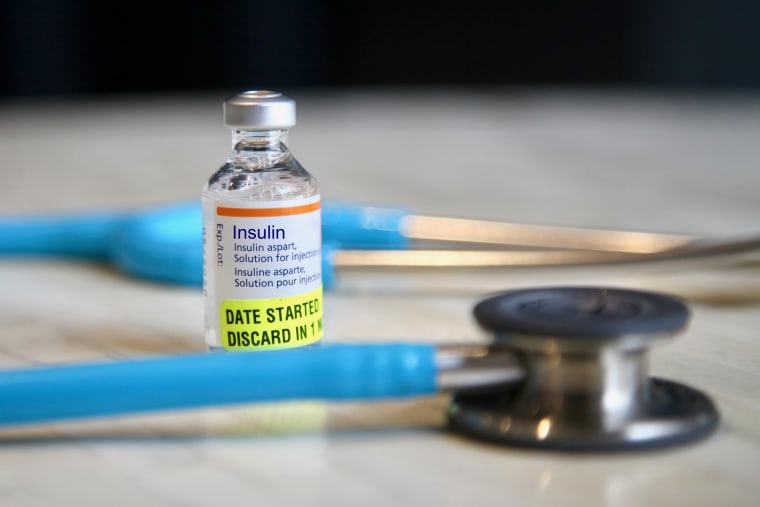Despite promises by pharmaceutical companies to limit insulin price hikes, the life-saving drug remains out of reach for many patients with diabetes — with fatal, or near-fatal, results.
As part of World Diabetes Day, the U.N. World Health Organization on Thursday announced a new initiative to sponsor the production of insulin under a process known as prequalification, previously used to create lower cost generic versions of drugs used to treat TB, malaria, and HIV. Once a drug is prequalified it can be purchased in bulk by international agencies at lower prices.
This year alone, there have been at least four reported deaths due to insulin rationing. And it's not just families living on the margins who are struggling to afford their diabetes medication. News reports depict patients in their 20s from middle-class backgrounds who hold jobs and have health insurance, but who died after taking drastic steps to control costs for their insulin.
Sa’ra Skipper had a full-time job and health insurance, but the 24-year-old from Indianapolis, Indiana, could not afford the $1,000 monthly cost for her insulin. So her younger sister Shelby, who also has diabetes but who gets free insulin through Medicaid, split vials with her. One night, Sa’ra took her dose but her sister didn’t realize it, and took less than normal, thinking she needed to leave some for Sa’ra. The next morning Shelby had to be hospitalized for diabetic ketoacidosis, and nearly fell into a diabetic coma.
While Shelby was able to recover and is doing well, the close call left her family shaken.
“At the time, I don’t know if I felt more helpless or guilty,” said Sa'ra. “It’s not my fault that insulin costs so much. I’m doing my part as a citizen, I’m working. I have these benefits. I can get my teeth cleaned, my eyes checked, but I can’t get the medicine that keeps me and my sister alive.”
One in four patients with diabetes reports using less insulin than prescribed, due to the cost, according to a recent study by Yale researchers. There are about 30 million adults with diabetes and about 1.25 million children and adults with type 1 diabetes, according to estimates from the American Diabetes Association.
Despite being discovered in the 1920s and costing as little as $4 per vial to produce, insulin now has an average list price of $300 per vial.
A trio of of pharmaceutical makers, Eli Lilly, Novo Nordisk, and Sanofi, control the market and raise prices at roughly the same time.
“If three companies seized control of the market for water globally and raised the prices 310 percent over 10 years there would be pitchforks at the gate,” said David Mitchell, founder of Patients For Affordable Drugs, a nonprofit advocacy group. “Insulin is like water for people with diabetes.”
The companies are also “gaming the patent system,” making incremental tweaks and filing for overlapping patents after their product hits the market, to ensure their monopoly and keep sophisticated generics at bay, according to a report by the group.
PhRMA, a trade organization representing pharmaceutical companies, did not respond to an NBC News request for comment. On its website, the organization says rising list prices for drugs only tells part of the story, and that the cost issues for customers may be a result of pharmacy benefit managers and insurers not sharing rebates with customers.
Some patients can be caught in a deadly "Catch-22" situation: Their deductible is too high to cover their insulin costs, but because they have insurance, they don’t quality for free or reduced cost programs. Patients may then turn to potentially fatal rationing, online fundraising, and trading supplies online with strangers in black market “pay it forward” Facebook groups or through Twitter.
In a 2019 Harvard-Politico poll, 92 percent of Americans said lowering high drug prices should be the number one priority of Congress.
“People are mad and they want to see change,” said Lauren Stanford, Community Organizing Director for Patients For Affordable Drugs and a type 1 diabetes patient. “They can't imagine people are choosing between affording to live and affording their groceries.”

